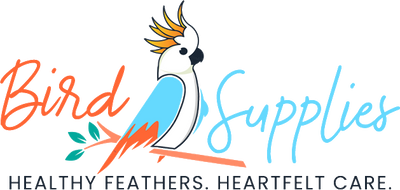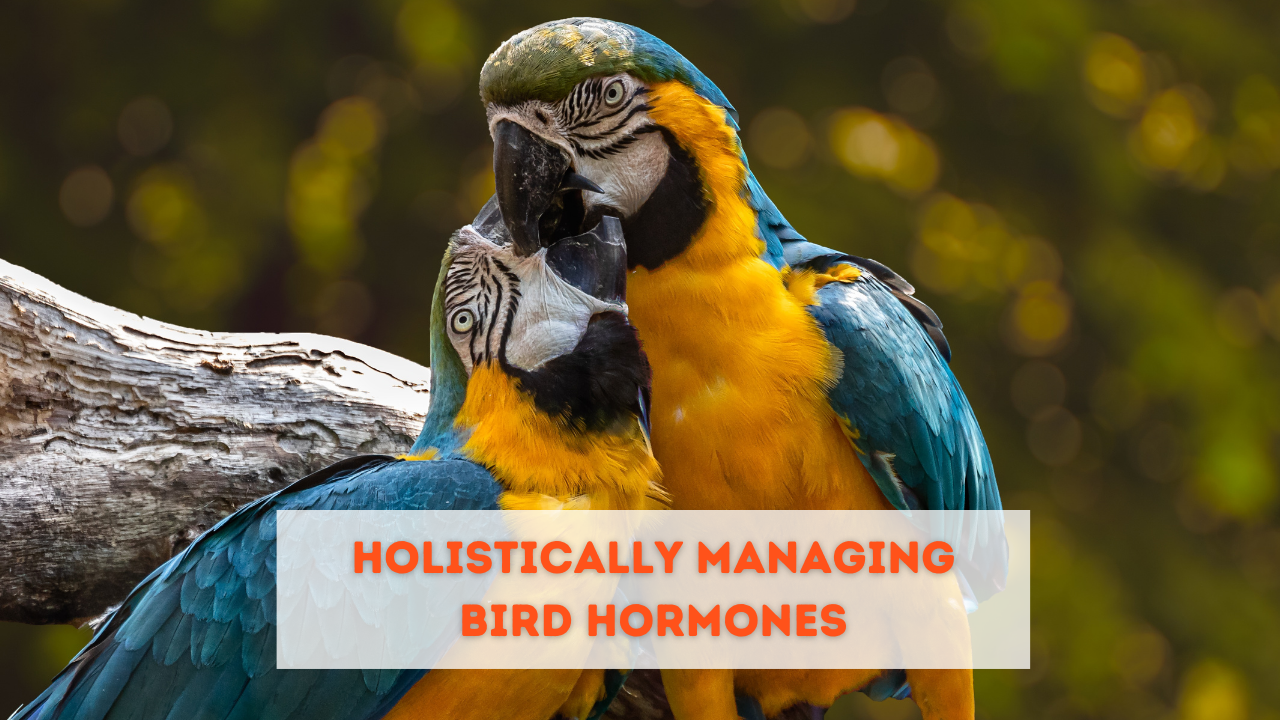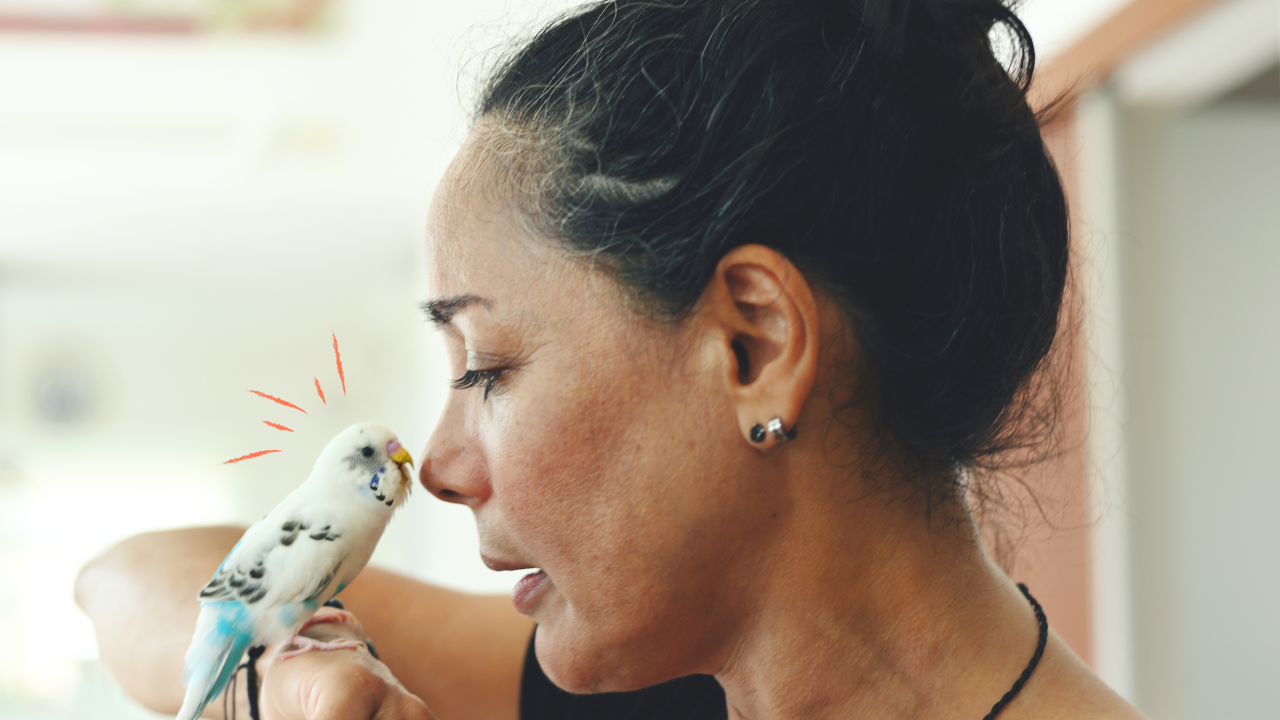Table of Contents
Understanding the Importance of Hormonal Balance
Meet Smokey, my Congo African Grey parrot, who's been a part of our family for 25 years. Over the last 15 years, he's been dealing with some intense hormonal changes that have led to behaviors like nest-scoping and getting pretty aggressive with me and our pets between February to May. It all started when we moved him closer to where we hang out at home, not realizing how much it would affect him.
To help Smokey out, I've done a lot of research on parrot hormones and trying out different things to make him feel better. We've adjusted his environment, like making sure he doesn't have access to nesting stuff, changed up his diet a bit, and even adjusted the lighting. But lately, it seems like simple environmental changes aren't working as well as we'd like. That's when we decided to develop a more holistic way to help manage bird hormones.
Diet is really important for our bird's health, especially for controlling hormone levels. In this discussion, we'll talk more about how to adjust their feeding and diet to help manage hormone effects, promoting a holistic approach to bird care that focuses on overall health rather than just using medicines.
The Complex Interplay of Diet and Hormones
1. Understanding Hormonal Balance
Reproductive hormonal balance is crucial for the overall health and behavior of birds. While hormones like estrogen and testosterone play essential roles in reproduction and behavior for both males and females, an imbalance can lead to a plethora of issues, including aggression, anxiety, and reproductive disorders. Therefore, managing hormone levels is key to ensuring the well-being of our avian companions.
2. Impact of Diet on Hormones
Diet plays a significant role in regulating hormone levels in birds. An overabundance of certain nutrients, such as proteins, sugars, and fats, can stimulate hormone production, leading to imbalances and associated behavioral problems. By adjusting feeding routines and diet, we can modulate hormone levels naturally, promoting a healthier and more balanced avian physiology.
Tailoring Feeding Routines for Hormone Management
1. Limiting Access to Hormone-Stimulating Foods
Feeding routines should prioritize nutrient balance and moderation to avoid triggering hormonal responses in birds. By offering smaller, more frequent meals and removing food bowls outside of designated feeding times, we can prevent overeating and minimize hormonal fluctuations. Additionally, reducing the consumption of sugary, fatty, and protein-rich foods can help maintain hormonal equilibrium.
2. Embracing Plant-Based Nutrition
Plant-based foods offer a wealth of nutrients while minimizing the risk of hormonal imbalances. By incorporating a variety of fruits, vegetables, and grains into their diet, we can provide essential vitamins, minerals, and antioxidants without the hormonal side effects associated with animal-based proteins. This shift towards a more plant-centric diet aligns with the natural feeding preferences of many bird species and promotes overall health and vitality.
Harnessing the Power of Hormone-Modulating Nutrients
What your bird eats can influence their hormonal balance. For instance, some foods may contain compounds that either stimulate or inhibit certain hormones. By providing a balanced diet rich in nutrients and avoiding foods that may trigger hormonal surges, you can help manage your pet bird's reproductive health.
1. Aromatase Inhibitors: Balancing Estrogen Levels
Aromatase inhibitors are substances that can help balance hormone levels in birds. They work by blocking an enzyme that changes male hormones into female hormones. These hormones, made in the brain, can affect how birds act and their body functions, whether they're male or female.
You can help manage your bird's hormone levels by giving them a mix of fresh or frozen foods that contain these aromatase inhibitors. This can help keep their estrogen levels in check and reduce the chances of reproductive problems.
-
Cruciferous vegetables: Examples include broccoli, cauliflower, cabbage, Brussels sprouts, and kale. These vegetables contain compounds called indoles, which may help inhibit aromatase activity.
-
Mushrooms: Some mushrooms, such as button mushrooms, contain natural aromatase inhibitors.
-
Flaxseeds: Flaxseeds contain lignans, which have been shown to reduce aromatase activity.
-
Grapes: Grapes and grape products like red wine contain resveratrol, which may have aromatase inhibiting properties.
-
Tumeric: This spice contains curcumin, which has been studied for its potential to inhibit aromatase.
-
Green tea: Green tea contains catechins, which have been studied for their potential to inhibit aromatase.
- Pomegranates: Pomegranates contain various antioxidants and polyphenols, which may help modulate aromatase activity.
2. Tryptophan: Promoting Serotonin and Melatonin Production
Research conducted by Yıldırım et al. (2020) sheds light on the potential benefits of tryptophan modulation in a birds diet to address excessive hormonal behavior. Tryptophan, an essential amino acid, serves as a precursor to neurotransmitters like serotonin and melatonin, which play crucial roles in mood regulation and sleep-wake cycles. By supplementing the diet with tryptophan-rich foods, bird owners may help promote optimal neurotransmitter function, reduce stress and anxiety levels, and encourage restful sleep in their feathered companions.
This approach aligns with holistic strategies aimed at managing hormonal behavior in pet birds, offering a natural and potentially effective means of promoting their overall well-being.
-
Bananas: Bananas are a good source of carbohydrates and contain tryptophan, which can support the production of serotonin, helping to regulate mood and reduce stress in birds.
-
Pumpkin seeds: Pumpkin seeds are rich in tryptophan, which can aid in the synthesis of serotonin and melatonin, promoting feelings of relaxation and supporting healthy sleep patterns in birds.
-
Sunflower seeds: Sunflower seeds are high in tryptophan, which can contribute to the production of serotonin and help regulate mood and behavior in birds.
-
Spinach: Spinach is packed with nutrients, including tryptophan, which can support the synthesis of serotonin and contribute to overall mood stability and relaxation in birds.
-
Grains like quinoa, oats, barley, and rice. Incorporating these grains into your bird's diet can contribute to their tryptophan intake, supporting the production of serotonin and promoting overall emotional well-being and relaxation.
3. Prolactin: Regulating Breeding and Molting Cycles
Prolactin plays a crucial role in regulating avian reproductive cycles and molting. By incorporating foods that naturally stimulate prolactin production, such as oats, chickpeas, and almonds, we can support healthy breeding behaviors and facilitate the transition from breeding to molting phases. This natural approach to prolactin modulation promotes reproductive health without the need for artificial interventions.
-
Oats: Oats are a good source of complex carbohydrates and B vitamins, which can support overall hormone balance, including prolactin regulation, in birds.
-
Barley: Barley is rich in fiber and contains phytoestrogens, which may help modulate hormone levels, including prolactin, in birds.
-
Brown rice: Brown rice is a whole grain rich in fiber and nutrients, including vitamin B6, which plays a role in hormone regulation and may help balance prolactin levels in birds.
-
Wheat germ: Wheat germ is high in vitamin E and B vitamins, which can support overall hormonal health, including prolactin regulation, in birds.
-
Chickpeas: Chickpeas are a good source of protein and fiber, as well as vitamins and minerals like vitamin B6 and zinc, which may help regulate prolactin levels and support reproductive health in birds.
-
Lentils: Lentils are rich in protein, fiber, and nutrients like iron and vitamin B6, which can help regulate prolactin levels and support overall hormonal balance in birds.
-
Almonds: Almonds are a nutritious nut rich in vitamin E, magnesium, and healthy fats, which may help support hormonal health, including prolactin regulation, in birds.
-
Cashews: Cashews are another nut high in nutrients like magnesium and vitamin B6, which can help regulate hormone levels, including prolactin, in birds.
-
Walnuts: Walnuts are rich in omega-3 fatty acids and antioxidants, which may help support overall hormonal balance, including prolactin regulation, in birds.
-
Pomegranates: Pomegranates are a fruit rich in antioxidants and vitamins, including vitamin C, which can support reproductive health and hormone balance, including prolactin, in birds.
Incorporating these natural, holistic bird-safe foods into your bird's diet can provide essential nutrients that support hormonal balance and overall well-being.
Integrating Diet with Other Hormone-Management Strategies
1. Environmental Modification
In addition to dietary adjustments, environmental factors such as lighting, physical interaction, and nesting opportunities can influence hormone levels in birds. By providing appropriate lighting cues, minimizing physical stimulation, and removing nesting materials, we can create a supportive environment that complements dietary interventions in managing hormone levels effectively.
2. Holistic Management vs. Pharmaceutical Interventions
While pharmaceutical interventions like Lupron shots may offer short-term relief from hormonal issues, they often come with side effects and long-term consequences. By prioritizing holistic management strategies, including dietary adjustments, environmental modifications, and behavioral interventions, we can address the root causes of hormonal imbalances and promote lasting health and well-being in our avian companions.
How to Holistically Manage Bird Hormones At Home
UnRuffledRx Sprouting Bird Seeds contains a variety of nutritious ingredients that may offer benefits for hormonal birds, especially when it comes to managing their hormone levels.
Bird greens, such as those containing alfalfa leaf, barley grass, broccoli powder, moringa leaf, spinach powder, spirulina, beet root, tomato, and dulse, offer a wealth of nutrients that can be particularly beneficial for hormonal birds.
In conclusion, managing hormone levels in birds requires a multifaceted approach that encompasses dietary adjustments, environmental modifications, and holistic management strategies. By tailoring feeding routines to minimize hormone-stimulating foods, incorporating hormone-modulating nutrients into their diet, and integrating dietary interventions with other hormone-management strategies, we can promote hormonal harmony and overall well-being in our feathered friends. Remember, a balanced diet and nurturing environment are powerful tools in the arsenal of avian care, offering a natural and sustainable alternative to pharmaceutical interventions.
Related Posts:
Curbing Hormonal Behavior In Parrots
Practical Tips For Getting Ready for Bird Hormone Season
Foods That Increase Parrot Hormones And Make Everyone Miserable
References:
Balthazart, J., Taziaux, M., Holloway, K., Ball, G. F., & Cornil, C. A. (2009). Behavioral effects of brain-derived estrogens in birds. Annals of the New York Academy of Sciences, 1163, 31–48.
Freking, F., Ramachandran, B., & Schlinger, B. A. (1998). Regulation of aromatase, 5 alpha- and 5 beta-reductase in primary cell cultures of developing zebra finch telencephalon. Journal of Neurobiology, 36(1), 30-40. https://doi.org/10.1002/(sici)1097-4695(199807)36:1<30::aid-neu3>3.0.co;2-b
Saldanha, C. J., Remage-Healey, L., & Schlinger, B. A. (2012). Neuroanatomical Distribution of Aromatase in Birds: Cellular and Subcellular Analyses. In: DeLisa, J.A., Kalb, R.G., & Tuszynski, M.H. (Eds.), Handbook of Neurochemistry and Molecular Neurobiology: Behavioral Neurochemistry, Neuroendocrinology and Molecular Neurobiology (Vol. 3, pp. 100–114). Oxford University Press. https://doi.org/10.1093/acprof:oso/9780199841196.003.0006
Yıldırım, A., Kraimi, N., Constantin, P., Mercerand, F., & Leterrier, C. (2020). Effects of tryptophan and probiotic supplementation on growth and behavior in quail. Poultry Science, 99(11), 5206–5213. https://doi.org/10.1016/j.psj.2020.07.047
Diane Burroughs, LCSW is a licensed psychotherapist trained in ABA therapy techniques. She specializes in avian anxiety disorders and is certified in Nutrition For Mental Health. Diane has written a number of bird behavior books and she offers behavior consultations. She's developed a range of UnRuffledRx Science-backed Parrot Wellness Supplies.
Diane's products have been featured in the Journal of Avian Medicine and Surgery and at Exoticscon, a conference for exotic pet veterinarians. Her bird collars & supplements are stocked in avian vet clinics and bird stores throughout the US. With over 30 years in the field of behavior, Diane has created thousands of successful individualized behavior plans that help pets thrive.
TAGS: #BirdStress #BirdSelfMutilation
SHARING IS CARING! PLEASE SHARE ON YOUR FAVORITE SOCIAL MEDIA NOW!




